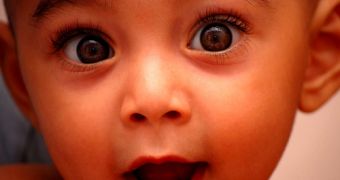A new study carried out on three-year-olds by Vikram K. Jaswal, of the University of Virginia and his students – A. Carrington Croft, Alison R. Setia, and Caitlin A. Cole, found out that young children have developed a bias to believe what they are told.
The interesting things that the experiment discovered was that kids do believe what they are told but become very skeptical about information that comes in other ways.
Children will believe that if they behave, they will get presents from Santa Claus or the Easter Bunny (because mom or dad said so), but why does this happen?
According to previous studies, three-year-olds believe everything, and rarely become skeptic at this age, so Jaswal wanted to see exactly what is it that they trust.
He was already working on the way that children learn language and he extended his study to see what kids do with the information they hear.
Jaswal wondered “why are they so willing to accept somebody else's word, for example, that an eel is a fish, when it looks so much like a snake?”
So, along with his students, he tested whether kids have the same trust for information they hear and for that which is given to them in other ways.
The experiment included 16 kids and it was rather simple: an adult showed them a red and a yellow cup, then hid a sticker under the red cup.
To some kids, the grownup said the sticker was under the yellow cup, and with others she just placed an arrow on the yellow cup without saying anything.
The children had the chance to search under one of the cups and if they found the sticker they could keep it, the game being repeated eight times, with differently colored cups.
This experiment showed that kids who saw the adult put the arrow on the incorrect cup, realized they should not believe her, but those who were told that the sticker was under a certain cup, believed her every time.
This is why out of the 16 kids, 9 never found the sticker and even if the adult had tricked them 7 times, on the 8th try they still listened to her – at the end of the study all children received stickers, whether they had found them or not.
Jaswal concluded that “children have developed a specific bias to believe what they're told; it's sort of a short cut to keep them from having to evaluate what people say.
“It's useful because most of the time parents and caregivers tell children things that they believe to be true.”
Obviously adults lie to children sometimes, like for Santa Claus or the Easter bunny, Tooth Fairy, etc. and even in more serious situations, but Jaswal adds that understanding kids' trusting nature is very useful.
The study was published in Psychological Science, a journal of the Association for Psychological Science.

 14 DAY TRIAL //
14 DAY TRIAL //